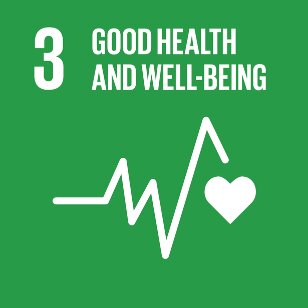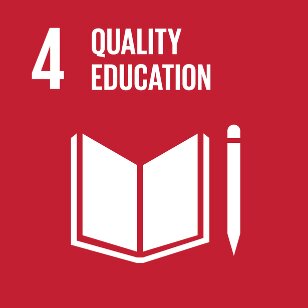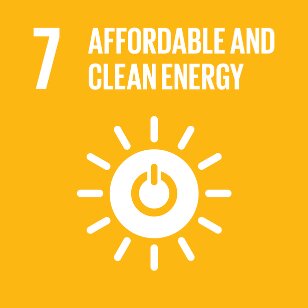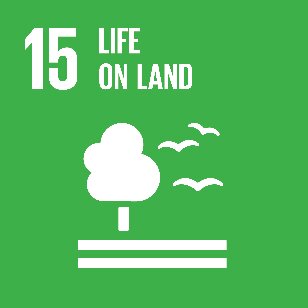FRESHAIR4Life and FRESHAIR and the SDGs

FRESH AIR and FRESHAIR4Life are beautiful illustrations of a "health in all policies" approach and has the potential to have a direct impact on three of the United Nations' SDGs and increase the possibility of success in at least two more.
SDG3 Ensure healthy lives and promote well-being for all at all ages

Goal 3 seeks to ensure health and well-being for all, at every stage of life. The Goal addresses all major health priorities, including reproductive maternal and child health; communicable, non-communicable and environmental diseases; universal health coverage; and access for all to safe, effective, quality and affordable medicines and vaccines. It also calls for more research and development, increased health financing, and strengthened capacity of all countries in health risk reduction and management.
FRESH AIR tackled one of the main NCDs: chronic respiratory diseases by implementation of smoking cessation programmes, improving diagnosis of childhood respiratory problems, reducing exposure to smoke from indoor biomass, and exploring how to improve access to effective treatments including smoking cessation and pulmonary rehabilitation. We are working locally, collaborating globally to build capacity in local workforces to tackle non-communicable respiratory diseases, working with Community Health Workers in Uganda, primary care teams in Vietnam, Crete and respiratory teams in the Kyrgyz Republic.
FRESHAIR4Life is tackling adolescent exposure to tobacco and poor air quality. FRESH AIR and FRESHAIR4Life are therefore is contributing to these SDG3 targets:
3.4 By 2030, reduce by one third premature mortality from non-communicable diseases through prevention and treatment and promote mental health and well-being
3.8 Achieve universal health coverage, including financial risk protection, access to quality essential health-care services and access to safe, effective, quality and affordable essential medicines and vaccines for all
3.a Strengthen the implementation of the World Health Organization Framework Convention on Tobacco Control in all countries, as appropriate
3.c Substantially increase health financing and the recruitment, development, training and retention of the health workforce in developing countries, especially in least developed countries and small island developing States
SDG 4 Quality Education

Goal 4 strongly supports the reduction of persistent disparities in education. Children from the poorest 20 per cent of households are nearly four times more likely to be out of school than their richest peers. Out-of-school rates are also higher in rural areas and among children from households headed by someone with less than a primary education.
In high income countries chronic respiratory diseases have a huge impact on children's ability to attend school, and this is likely to be the case in low income countries too, compounded by other socio-economic challenges. FRESH AIR helped communities put in place measures to tackle chronic respiratory diseases, and to engage local communities, such as Community Health Workers in learning about and sharing knowledge about lung health and clean fuel and cookstoves, it may also have an impact on SD4 targets.
FRESHAIR4Life will be engaging young people to learn more about the risks to their health and enabling them to promote sustainable development.
In particular:
4.4 By 2030, substantially increase the number of youth and adults who have relevant skills, including technical and vocational skills, for employment, decent jobs and entrepreneurship
4.5 By 2030, eliminate gender disparities in education and ensure equal access to all levels of education and vocational training for the vulnerable, including persons with disabilities, indigenous peoples and children in vulnerable situations
4.7 By 2030, ensure that all learners acquire the knowledge and skills needed to promote sustainable development, including, among others, through education for sustainable development and sustainable lifestyles
It will also mean that communities may have a greater preparedness to benefit from SDG 7
SDG 7 Ensure access to affordable, reliable, sustainable and modern energy for all

The proportion of the world’s population with access to clean fuels and technologies for cooking increased from 51 per cent in 2000 to 58 per cent in 2014, although there has been limited progress since 2010. The absolute number of people relying on polluting fuels and technologies for cooking, such as solid fuels and kerosene, however, has actually increased, reaching an estimated three billion people. Limited progress since 2010 falls substantially short of global population growth and is almost exclusively confined to urban areas.
FRESH AIR worked with colleagues in Masindi, Uganda, and EnDev to test the implementation of cleaner cookstoves, and to reduce reliance on wood and kerosene. In the Kyrgyz Republic we explored what is possible and affordable to reduce reliance on the use of animal dung as the fuel for cooking and heating in the Highlands. In Crete, the challenge is the return to use of wood-burning stoves in financially austere times. In Vietnam we highlighted the risks to health of young children of wood burning.
By helping communities understand the health problems associated with the fuels they use, and connecting with schemes aiming to address SDG 7, FRESH AIR helped prepare communities to benefit from other SD7 interventions.
With FRESHAIR4Life, we will continue with these goals, focused on adolescents' exposure.
In particular:
7.1 By 2030, ensure universal access to affordable, reliable and modern energy services
And by using reliable, modern energy services, there may be an impact on SDG 15 where wood is the preferred fuel:
SDG 15 Life on Land

Protect, restore and promote sustainable use of terrestrial ecosystems, sustainably manage forests, combat desertification, and halt and reverse land degradation and halt biodiversity loss.
We have the possibility with FRESHAIR4Life to highlight to adolescents the harm to the environment caused by land clearance for tobacco growing and production. We will also explore the potential to engage them in action to reduce the harm to the environment of single use plastic found in cigarette butts and single use disposable vapes, and packaging for chewed tobacco.
15.2 By 2020, promote the implementation of sustainable management of all types of forests, halt deforestation, restore degraded forests and substantially increase afforestation and reforestation globally
For more on the SDGs go to the UN website.